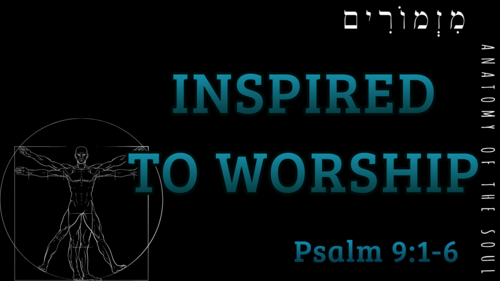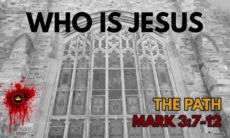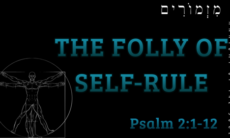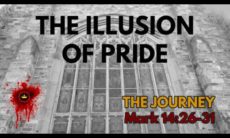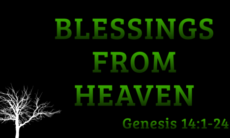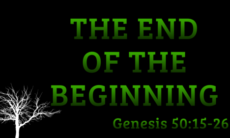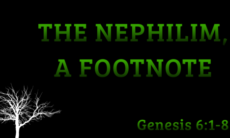Psalm: ANATOMY OF THE SOUL
Inspired To Worship: Psalm 9:1-6
Pastor John Weathersby
Sunday August 21, 2022
Draft, not a transcript
Psalm 9 represents the first of the Psalms 8 acrostics, when 9 is taken together with 10 and where some smoothing work is done. Generally speaking, the acrostics in the Psalms are a poetic form that has each stanza of the poem beginning with the following successive letter in the Hebrew alphabet; an excellent way for Hebrew children to learn doctrine and theology while learning their alphabet.
These are found in the combination of 9 and 10, Psalm 25, 34, 37, 111/112, 119, and 145. Whereas 111 and 112 are naturally flowing pairs, each dividing and completing the alphabet where the previous left off. Each has 22 classes and 10 verses, each clause beginning with the following successive letter of the alphabet. Psalms 9 and 10 are more obscure. The handoff isn’t graceful, and frankly, the structure feels more forced. However, it is generally regarded as such.
Note the tone change in reading from chapter 9 to chapter 10. All of 9 is upbeat in its nature and forward-looking to hope, then 10 comes with an about-face “why O Lord to you stand far away” a far cry from )
Psalm 9:19–20 (ESV)
19 Arise, O Lord! Let not man prevail;
let the nations be judged before you!
20 Put them in fear, O Lord!
Let the nations know that they are but men! Selah
To:
Psalm 10:1 (ESV)
Why Do You Hide Yourself?
1 Why, O Lord, do you stand far away?
Why do you hide yourself in times of trouble?
With the issue of the Acrostic somewhat set aside, let’s see David inspired to Worship by a sovereign God and catch the same inspiration for daily living where we’re called to worship in all tenses, present, past, and future.
The ESV starts, “to the choirmaster: according to Muth-labben. A Psalm of David”
The LSB starts, “For the choir director. Almuth-labben. A Psalm of David.”
The muth-labben or almuth-labben some think is a melody or tune commentators have grasped to try to find more profound keys to knowing what David was talking about here, but they’re just not there. We know that David in this Psalm will be singing thanks to God for victory and praising God by thinking back on His past goodness to David – this Psalm sets a tone for a worshipful David and gives us a pattern for worshipful living.
Whether David was thinking back here on the defeat of Goliath, on a captain of one of his enemies named Labben, whether he was thinking of a melody that he thought fit, or some other inspiration or tune, in the end, we see David inspired to worship.
Psalm 9:1–6 (ESV)
1 I will give thanks to the Lord with my whole heart;
I will recount all of your wonderful deeds.
With my whole heart, I will give thanks to God, David says – his whole heart. On this point, John Calvin points to Habakkuk 1:16 to show the right perspective of the double-hearted man. Look at the story in fuller context:
Habakkuk 1:12–2:5 (ESV)
Habakkuk’s Second Complaint
12 Are you not from everlasting,
O Lord my God, my Holy One?
We shall not die.
O Lord, you have ordained them as a judgment,
and you, O Rock, have established them for reproof.
13 You who are of purer eyes than to see evil
and cannot look at wrong,
why do you idly look at traitors
and remain silent when the wicked swallows up
the man more righteous than he?
14 You make mankind like the fish of the sea,
like crawling things that have no ruler.
15 He brings all of them up with a hook;
he drags them out with his net;
he gathers them in his dragnet;
so he rejoices and is glad.
16 Therefore he sacrifices to his net
and makes offerings to his dragnet;
for by them he lives in luxury,
and his food is rich.
17 Is he then to keep on emptying his net
and mercilessly killing nations forever?
2:1 I will take my stand at my watchpost
and station myself on the tower,
and look out to see what he will say to me,
and what I will answer concerning my complaint.
The Righteous Shall Live by His Faith
2 And the Lord answered me:
“Write the vision;
make it plain on tablets,
so he may run who reads it.
3 For still the vision awaits its appointed time;
it hastens to the end—it will not lie.
If it seems slow, wait for it;
it will surely come; it will not delay.
4 “Behold, his soul is puffed up; it is not upright within him,
but the righteous shall live by his faith.
5 “Moreover, wine is a traitor,
an arrogant man who is never at rest.
His greed is as wide as Sheol;
like death he has never enough.
He gathers for himself all nations
and collects as his own all peoples.”
Yes, he sacrifices TO HIS NET, his prowess, strength, and ability. To Habakkuk, it seems that God is allowing them to “get away with murder” like a sibling arguing, but you let so and so stay up past 10, and I can’t stay up that late…
In the 1st verse, David says, I give thanks with my whole heart – how recounting His wonderful deeds. Looking back over his own life, looking back over knowing who God is, framing this life appropriately, and remembering WHO God is.
2 I will be glad and exult in you;
I will sing praise to your name, O Most High.
This single-heartedness undistracted by self or selfishness resulted in songs of praise.
In reflecting on the Psalms, C.S. Lewis wrote:
I had not noticed either that just as men spontaneously praise whatever they value, so they spontaneously urge us to join them in praising it: “Isn’t she lovely? Wasn’t it glorious? Don’t you think that magnificent?” The Psalmists in telling everyone to praise God are doing what all men do when they speak of what they care about. My whole, more general, difficulty about the praise of God depended on my absurdly denying to us, as regards the supremely Valuable, what we delight to do, what we indeed can’t help doing, about everything else we value.
Like the acrostic form (whether this is one, or where 9 and 10 are one or 2, we’re compelled by David to worship, and like the acrostic form, the songs we sing are designed to communicate truth and give our single-minded hearts of worship and outlet for the praise that the Psalmist calls us to live-out.
3 When my enemies turn back,
they stumble and perish before your presence.
David knows that in God’s sovereignty, his enemies cannot even turn away. Fleeing isn’t even an option. They stumble and perish before or because of God.
Consider:
Psalm 68:1 (ESV)
1 God shall arise, his enemies shall be scattered;
and those who hate him shall flee before him!
Isaiah 64:3 (ESV)
3 When you did awesome things that we did not look for,
you came down, the mountains quaked at your presence.
David understands God’s sovereignty. He sees the events of his life playing out through the counsel of God’s will – he filters life this way.
Do we believe in an active living sovereign God? This is a question we should ask. It’s almost as if we containerize or compartmentalize our lives. We have church and bible study/reading where we see God working. Then we go grind out 6 days of disconnected life. I pray that David’s view of life inspires us to one of single-hearted worship and seeing God’s hand in our own lives. We’re called to worship in all tenses, present, past, and future.
When David saw his enemies flea, he saw God working. When David thought back on God in his life and meditated on God’s goodness and grace across history, he was driven to praise in song.
What about us?
Does:
Psalm 16:5 (ESV)
5 The Lord is my chosen portion and my cup;
you hold my lot.
Does that ring true for us?
How about:
Psalm 140:12 (ESV)
12 I know that the Lord will maintain the cause of the afflicted,
and will execute justice for the needy.
Do we believe that God is active, engaged, involved, and caring?
What do we see in Christ, who lived in all ways like us just without sinning? How did he live when he felt pressed:
1 Peter 2:23 (ESV)
23 When he was reviled, he did not revile in return; when he suffered, he did not threaten, but continued entrusting himself to him who judges justly.
He trusted himself, in his circumstances in this life, to God.
Our desire to see our outcomes when we want them is brattish. Think back to Habakkuk. It made since to him to complain to God because these people, Babylonians who were more wicked than the Judeans, were not being held to the same standard of God’s and taking them out like fish from the sea.
God assures him in 2:1 that what he (Habakkuk) sees about them is valid and will be their downfall. And verse 3 is the hammer:
Habakkuk 2:2–3 (ESV)
The Righteous Shall Live by His Faith
2 And the Lord answered me:
“Write the vision;
make it plain on tablets,
so he may run who reads it.
3 For still the vision awaits its appointed time;
it hastens to the end—it will not lie.
If it seems slow, wait for it;
it will surely come; it will not delay.
4 For you have maintained my just cause;
you have sat on the throne, giving righteous judgment.
Again, David recognizes God in all aspects of his life. His success militarily isn’t his own prowess or efforts but God, who maintained his case on the throne as rightful ruler and righteous in his judgment (s).
5 You have rebuked the nations; you have made the wicked perish;
you have blotted out their name forever and ever.
The conquests brought by God, who is a righteous judge David sees as consistent with the word:
Proverbs 10:7 (ESV)
7 The memory of the righteous is a blessing,
but the name of the wicked will rot.
Look at David’s pronouncement in:
1 Samuel 17:45 (ESV)
45 Then David said to the Philistine, “You come to me with a sword and a spear and with a javelin, but I come to you in the name of the Lord of hosts, the God of the armies of Israel, whom you have defied.
6 The enemy came to an end in everlasting ruins;
their cities you rooted out;
the very memory of them has perished.
Like Proverbs 10:7 above is:
Proverbs 13:9 (ESV)
9 The light of the righteous rejoices,
but the lamp of the wicked will be put out.
This short view of present reality in light of future eternity is the one we should take on, and it will inspire our worship. We’re called to worship in all tenses, present, past, and future.
There is a Men in Black 3 on Netflix. I thought this was a new movie. It came out in 2012 before people had Jada’s name in their mouths…
In the movie, there is a character Griffn or Grif – Grif is the last member of the Archanan, who can see all possible futures. When they have him with them, they have confidence because they feel like they know outcomes in the future, and they have Griff’s council.
However, it’s funny because Griff keeps saying unless this is the one where – because there are many possible outcomes, he can see all of them based on choices. Now with Griff the Archanan in view, let’s read something authoritative and real:
Revelation 20:11–21:4 (ESV)
Judgment Before the Great White Throne
11 Then I saw a great white throne and him who was seated on it. From his presence earth and sky fled away, and no place was found for them.
12 And I saw the dead, great and small, standing before the throne, and books were opened. Then another book was opened, which is the book of life. And the dead were judged by what was written in the books, according to what they had done.
13 And the sea gave up the dead who were in it, Death and Hades gave up the dead who were in them, and they were judged, each one of them, according to what they had done.
14 Then Death and Hades were thrown into the lake of fire. This is the second death, the lake of fire.
15 And if anyone’s name was not found written in the book of life, he was thrown into the lake of fire.
The New Heaven and the New Earth
2:1 Then I saw a new heaven and a new earth, for the first heaven and the first earth had passed away, and the sea was no more.
2 And I saw the holy city, new Jerusalem, coming down out of heaven from God, prepared as a bride adorned for her husband.
3 And I heard a loud voice from the throne saying, “Behold, the dwelling place of God is with man. He will dwell with them, and they will be his people, and God himself will be with them as their God.
4 He will wipe away every tear from their eyes, and death shall be no more, neither shall there be mourning, nor crying, nor pain anymore, for the former things have passed away.”
David sees God in everything as a reflection back. This causes single-hearted worship that the psalmist calls us into; let’s see David inspired to Worship by a sovereign God and catch the same inspiration for daily living!
Because we’re called to worship in all tenses, present, past, and future.
Pray, Observe, Apply.


